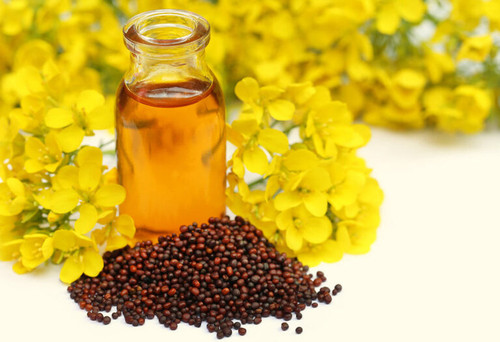Organic Licorice / Liquorice Oil 50ml
Licorice, or liquorice, is a plant native to the Mediterranean region and parts of Asia. It has been used for centuries in traditional medicine systems like Ayurveda and traditional Chinese medicine for its potential health benefits. Licorice oil, derived from the root of the licorice plant, is known for its aromatic properties and therapeutic uses. Here are some potential benefits associated with licorice oil:
-
Anti-inflammatory properties: Licorice oil contains compounds such as glycyrrhizin and flavonoids that exhibit anti-inflammatory effects. It may help reduce inflammation in the body and alleviate symptoms associated with conditions like arthritis, asthma, and certain skin conditions.
-
Digestive support: Licorice oil has been traditionally used to support digestive health. It may help soothe the digestive tract, relieve indigestion, and reduce symptoms of gastric ulcers. It is also believed to have mild laxative properties.
-
Respiratory health: Licorice oil is commonly used in herbal remedies for respiratory conditions. It may help relieve cough, sore throat, and congestion due to its expectorant and soothing properties. It is often found in cough syrups and lozenges.
-
Skin care: The anti-inflammatory and antioxidant properties of licorice oil make it beneficial for skincare. It may help reduce redness, itching, and inflammation associated with various skin conditions like eczema, psoriasis, and acne. It is also used in cosmetic products to brighten the skin and reduce hyperpigmentation.
-
Hormonal balance: Licorice oil contains compounds that mimic the activity of certain hormones in the body. It may help regulate hormonal imbalances and alleviate symptoms of hormonal disorders such as polycystic ovary syndrome (PCOS). However, it is important to use licorice oil under the guidance of a healthcare professional for hormonal issues.
-
Antiviral properties: Some research suggests that licorice oil may have antiviral effects against certain viruses, including herpes simplex virus and respiratory syncytial virus (RSV). However, more studies are needed to fully understand its antiviral potential.
Licorice oil can be used in various ways depending on the desired benefits and the specific product you have. Here are some common methods of using licorice oil:
-
Topical application: Dilute licorice oil with a carrier oil, such as coconut oil or jojoba oil, before applying it to the skin. This helps prevent skin irritation. You can use a few drops of licorice oil per tablespoon of carrier oil and gently massage it into the affected area. This method is often used for skin conditions, such as eczema or acne.
-
Inhalation: Add a few drops of licorice oil to a diffuser or vaporizer and inhale the aromatic vapor. This method can help relieve respiratory issues, such as cough, congestion, or sore throat. You can also add a few drops of licorice oil to hot water and inhale the steam by covering your head with a towel.
-
Steam inhalation: Add a few drops of licorice oil to a bowl of hot water. Lean over the bowl, cover your head with a towel, and inhale the steam. This method can provide respiratory benefits and help clear nasal passages.
-
Mouthwash or gargle: Dilute a few drops of licorice oil in a glass of warm water and use it as a mouthwash or gargle. This can help soothe a sore throat, reduce inflammation, and promote oral health.
-
Internal consumption: Licorice oil is highly concentrated, and internal consumption should be done under the guidance of a healthcare professional. It is often used in small amounts as a flavoring agent in herbal teas or certain culinary preparations. However, excessive consumption of licorice oil or glycyrrhizin-containing products can have adverse effects, especially for individuals with high blood pressure or certain health conditions.











